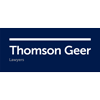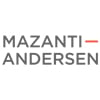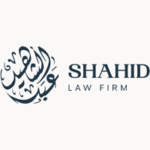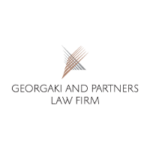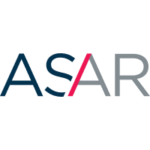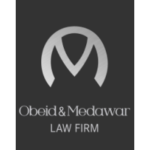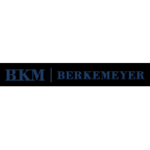-
What are the key rules/laws relevant to M&A and who are the key regulatory authorities?
The key rules applicable to M&A depend on the differences between public and private M&A transactions. While a public M&A process is highly regulated due to mandatory rules and required approvals by regulatory authorities, private M&A mostly lays in the negotiations between the parties. M&A transactions under the participation of German companies always request awareness for European Law besides and in addition to national laws.
Besides German Stock Corporation Act (AktG), laws related to the capital market, such as German Securities Acquisition and Takeover Act (WpÜG) and German Securities Trading Act (WpHG) are relevant to public M&A deals. Those national rules are complemented by European regulations, i.e. the Market Abuse Regulation (MAR).
The private M&A-process, on the contrary, is mostly up to parties autonomy. Only in case the parties do not agree upon a specific regulation within the contract, laws do apply, in particular, the German Civil Code (BGB), the German Limited Liability Company Act (GmbH-Gesetz) and the German Commercial Code (HGB). Since a significant amount of German medium-sized companies are organized in the form of a Limited Partnership with a limited liability company as general partner (GmbH & Co. KG) adaptions within the laws applying to partnerships at the begin of 2024 by the Act to modernize the Laws of Partnerships (MoPeG) must be considered. However, supervision by regulatory authorities plays a subsidiary role in the M&A process except for merger control and foreign direct investment approval on national and EU level which have an increasing relevance to private M&A deals. Especially, midcap and large cap transactions (in particular in highly sensitive sectors or in transactions parties from third countries are involved) require the approval of the European Commission, the German Federal Cartel Office and/or the Ministry of Economic and Climate Protection (BMWi).
Besides the main regulatory framework, both public and private M&A transactions face a number of specific rules. While many rules differ from sectors, the German legal system consists of an increasing number of corporate sustainability obligations. Such obligations have a significant scope of application which makes them relevant to large cap as well as to small cap transactions. The Corporate Sustainability Reporting Directive (CSRD) and the Whistleblower Protection Act (Hinweisgeberschutzgesetz) constitute examples of new corporate governance legislation. Besides general legislation numerous industry sectors are affected by the German Supply Chain Due Diligence Act (Lieferkettensorgfaltspflichtengesetz). In 2024, the European legislators have adopted and enhanced supply chain duties through the European Corporate Sustainability Due Diligence Directive (CSDDD).
-
What is the current state of the market?
The development of the M&A market shows overall a slightly positive trend although the economic circumstances might have expected a different picture and the current situation is challenging to M&A activities. In total, the M&A activities increased by +5.1 % (2,752) in 2024 or 134 transactions more compared with the M&A year 2023. According to the historical average since 1998, the amount of deals increased by +56.2 % which makes 2024 to be the second best M&A year within the last 25 years. Transaction activity of foreign investors enhanced by +10.7 %. The market for domestic transactions, however, only increased slightly in the amount of +1.6 %. Thus, the trend of more foreign investors in German M&A market continues while domestic investors are cautious. In this environment, Public-to-Private transactions are increasingly gaining ground. Conclusively, the year 2024 showed a German M&A market driven by foreign private equity Funds and a slight comeback of in border transactions.
-
Which market sectors have been particularly active recently?
Across all sectors, the M&A activity increased or at least remained consistent. The TMT sectors continues to be the M&A sector with the most transaction although the amount of deals decreased slightly by -1.2 %. However, the Industrial Machinery sectors showed a significant increase of transactions in the amount of 24.0 %. The increase was mainly caused by additional transactions in Automotive Industry. The number of transactions in the Energy sector, however, declined by -35.1 %. Overall, many sectors prove an increase in deal activity: Consumer & Retail sectors by +29.8 %, Healthcare sectors by +15.09 % and Business Support sector by +3.46 %. The numbers of 2024 prove a wide range of industry sectors to be active in M&A transactions.
-
What do you believe will be the three most significant factors influencing M&A activity over the next 2 years?
The M&A activity in Germany is impacted by long term disruptions on the one hand and short term developments on the other hand. Referring to long term disruptions the influence of Artificial Intelligence (AI) is probably ranked first of current significant factors to M&A. Not only does AI-technology evokes the interest of investors, but it changes the efficiency in M&A transactions. Especially, the advantages in analyzing huge amounts of data does and will drive M&A processes. Whereas AI as significant factor in a M&A process is still in its infancy, its potential to disruption is considerable. Even, existing AI-applications simplify procedures. However, European legislation – in contrast to other jurisdictions – has chosen a regulatory path for AI which might impact the development and use of AI in Germany. The impact of the European AI-act on the development and use of AI in Germany is hardly predictable. Nevertheless, AI remains an area for technological and economic development for the upcoming years.
The second long term impact to M&A activities comes from the ESG side. Regulatory activities in the EU and in Germany lead to an increase in sustainability regulation. A wide range of German companies is obliged to invest more focus on its sustainability actions. However, ESG is not only considerable form its regulatory component. Sustainability will constantly grow in relevance as driver or barrier to M&A transactions. Recent transactions show specific focus on ESG risks through the due diligence process. Sustainable industry establishes itself as independent industry sector besides the AI-sector and gets attention from investors.
As short term factor to the M&A market, Germany is and will be influenced by its economic issues caused by recession, shortage of employee, and uncertain geopolitical prospections. However, political and economic challenges have not been significantly inhibiting to the German M&A market yet. Even the year 2024 has proven that economic issues of Germany do not resist to M&A market to grow. Especially, distressed M&A transactions and transactions with Private Equity Funds involved are increasingly taking up space. Thus, the interests of the M&A market and especially the origin of vendors is expected to shift rather than a decline in numbers of transactions.
-
What are the key means of effecting the acquisition of a publicly traded company?
The required means to acquire a publicly traded company depend on the stake that shall be acquired. German law distinguishes different kinds of offer that are set out in the German Securities Acquisition and Takeover Act. Conclusively, there are the ordinary acquisition offer, takeover offers and mandatory offers.
The ordinary acquisition offer concerns the acquisition of shares without obtaining control over the target company or in case the acquiror still obtains the control. The ordinary acquisition offer is characterized by the lack of an obligation to pay an appropriate consideration.
In contrast, a takeover offer requires to offer an appropriate consideration for acquiring the shares of a minority shareholder. The takeover offer relates to the case the acquiror obtains the control through the acquisition. A shareholder has the control over a Stock Corporation if it holds at least 30 % of the shares in the company. However, the German Securities Acquisition and Takeover Act contains exceptions for a takeover offer which require an approval by regulatory authorities.
The mandatory offer concerns the constellation that a shareholder obtains the control over a company other than by a takeover offer. The cases for mandatory offers are narrowed through exceptions stipulated by German Securities Acquisition and Takeover Act. If a mandatory offer is required, obligations to pay an appropriate consideration will apply as well.
-
What information relating to a target company is publicly available and to what extent is a target company obliged to disclose diligence related information to a potential acquirer?
The amount of information about a target company that is publicly available depends on its legal form. Generally, almost every company is obliged to be registered with the German Commercial Register and thereby must publish certain information. The German Commercial Register is accessible via a website and a query is free of charge. The commercial register provides general information about a company such as the legal form or its representatives. Further, the articles of association, a list of shareholders, and shareholder resolutions – depending on the legal form of a company – are accessible via the Commercial Register. The list of shareholders in particular is not freely available for stock corporations. In addition, the annual financial statements of companies can be found in the German Federal Gazette (Bundesanzeiger) if the company is required to publish them.
In a due diligence process the target company is obliged to disclose further information. There is no general approach to which extent a company must disclose internal information. The disclosed information must be in sufficient detail to enable an experienced purchaser with the relevant expertise to make a reasonably informed assessment of the target company. This principle has been confirmed by the German Federal Court of Justice (BGH).
-
To what level of detail is due diligence customarily undertaken?
The level of detail for due diligence is regularly up to the agreed scope. No specific law considering the level of details exists. Thus a low level of detail is usually covered by guarantees and indemnities within the contract. However, it is common that a legal due diligence covers the areas of corporate matters, finance, employment, relevant contracts, real estate, IT/IP, environmental and litigation/arbitration/regulatory.
Nevertheless, the required level of detail in due diligence is influenced by the obligations for directors of a company. Before acquiring the shares of a company the director must secure that the acquisition is based on adequate information. Additionally, a judgement of the German Federal Court of Justice on the Due Diligence process is noteworthy: Vendors are pre-contractually obliged to fairly disclose information about the target company in the (virtual) data room. The disclosure of information under false description may cause liability of the vendor. According to this judgement, transactions under participation of German companies require an accurate preparation of the due diligence process.
-
What are the key decision-making bodies within a target company and what approval rights do shareholders have?
The key decision-making bodies depend on the type of company and the provisions in the Articles of Association (AoA) or alternatively the Shareholder Agreement (SHA). It is common, especially in the AoA or SHA of a German Limited Liability Company (GmbH), to agree upon specific approval rights for shareholders even though the mandatory law does not require such. Thus the necessary approvals vary between the companies. Since a GmbH requires the consent of the shareholders to acquire or sell shares, a shareholders resolution is commonly made within the M&A process. Although a GmbH mandatorily only consists of a management board and the general meeting of the shareholders, a supervisory board can be installed which may have the right to approve a transaction.
The key bodies of a German Stock Corporation (AG) are the managers board, the supervisory board and the general meeting of the shareholders. The approval rights and the control over the company is split between the supervisory board and the shareholders. However, only the supervisory board can directly impact the management board. The supervisory board appoints, removes and supervises the board members. The shareholders have only indirect influence on the operating business through their right to appoint the members of the supervisory board or the right to discharge the management board and supervisory board.
-
What are the duties of the directors and controlling shareholders of a target company?
Pursuant to the act on German stock corporation and German limited liability company board members or directors have to comply with a catalogue of duties. Primarily, the directors must exercise the diligence of a prudent and conscientious manager. The director fulfills this duty when he/she acts in the best interest of the company. German courts have derived many specific obligations from the general duty for directors. Those duties apply to the M&A process as well, e.g. the duty to disclose relevant documents in the VDR, the duty to conceal specific business details, the duty to negotiate in the best interest of the target company, which may include the duty to negotiate with different investors etc. On the other side, shareholders must act in the best interest of the target company as well whereby the catalogue of duties differs from director’s duties since shareholders are not obliged to conduct the operative business. In M&A transactions with middle-sized companies, it should be considered that shareholder and director are often the same person.
-
Do employees/other stakeholders have any specific approval, consultation or other rights?
Generally, respecting stakeholder rights in M&A transactions is common since especially employees have a considerable legal position in German companies. This makes it necessary to examine whether the target company is bound by collective agreements and/or operating agreements. Such agreements may require consultation of employees (e.g. worker council) before a transaction can be performed. By law the German Civil Code stipulates the right of objection against the transfer of operations (Betriebsübergang) for employees. If a company employs more than 500 employees, it is obliged to save a third of the seats of the supervisory board for employees. In case the target company is a Limited Liability Company, the company is in such scenario obliged to establish a supervisory board.
-
To what degree is conditionality an accepted market feature on acquisitions?
Conditionality is a usual and accepted market feature in accordance with German law and in certain scenarios even required. A variety of conditions is negotiated throughout an acquisition process, especially regulatory consent requirements, such as merger clearance conditions or reorganization conditions. Additionally, the payment of the purchase price is a common condition to the transaction. Thus, conditionality is an instrument to conclude transaction agreements and simultaneously securing factual or legal interests of the parties to be fulfilled before the transaction can be performed. The fulfillment of the conditions agreed in a share and/or asset agreement characterizes the closing process after the signing. The right of set-off and right of retention, however, is usually excluded by the parties.
-
What steps can an acquirer of a target company take to secure deal exclusivity?
As publicly traded target companies are characterized by its openness to varying investors, granting deal exclusivity seems unusual. Additionally, since directors must act in the best interest of a company and therefore must negotiate with different investors, granting deal exclusivity might contradict the duties of a director. It should be noted that directors may be hold liable in case the exclusive deal is not in the best interest of the target company. However, as long as management duties and mandatory legal provisions are respected a publicly traded company can also grant deal exclusivity.
In contrast, private companies may grant deal exclusivity even though directors duties must be taken into account. The option of exclusivity can usually be derived from the Letter of Intent or the Term Sheet. Thus, if the M&A process is not planned as bidding process, deal exclusivity is most commonly possible. Generally, deal exclusivity in M&A transactions under the participation of German companies is not uncommon and depends in the commercial parameters of the transaction and the time line. We observe that especially in bidding processes exclusivity (informally) granted to bidders for a short period of time within the transaction process is becoming increasingly attractive.
-
What other deal protection and costs coverage mechanisms are most frequently used by acquirers?
Typically discussed deal protection mechanisms include termination or break-up fees that are paid to the seller in case the deal is not completed. Those protection mechanisms are agreed upon in an early stage of a M&A process, i.e. the term sheet or LoI. Break-up fees are not unusual in German M&A market and an acknowledged mechanism for deal protection. A comparable deal protection mechanism concerns cost coverage clauses. Other mechanisms such as non-solicitation provisions or exclusivity agreements are acknowledged as well. Thus, the decision about the use of such mechanisms depends on the intentions of the parties involved in the M&A process.
-
Which forms of consideration are most commonly used?
In German M&A market cash offers remain the most common consideration. The offer of shares instead of cash is also acknowledged in the market. Therefore, it is part of practice to offer the seller to reinvest in the company of the acquirer by taking a minority stake. We observe that such reinvestments by sellers in private equity transactions in order to maximize the exit process and to keep the know-how in the target company. This mechanism is used with pleasure when the seller receives a call option for the sold shares in order to give the option continuing to participate in the operations of the target company. Since private equity involvement continuously increases, such forms of considerations seem to enhance.
-
At what ownership levels by an acquirer is public disclosure required (whether acquiring a target company as a whole or a minority stake)?
The acquirer of a company that is publicly traded must inform the company and the German Federal Financial Supervisory Authority (BaFin) about its amount of shares in the company under German Securities Trading Act when specific thresholds are met. The lowest threshold is up to 3 %. Further thresholds are set at 5 %, 10 %, 15 %, 20 %, 25 %, 30 %, 50 % or 75 %. Ownership includes direct and indirect participation in the company. It is noteworthy that the obligation to inform the regulatory authorities and the target company about the level of ownership also arises if the shareholding in the company falls under a threshold. Private M&A transactions, on the contrary, usually do not require notifications to financial supervisory authorities.
Besides notifications under German Securities Trading Act a public offer to acquire the shares in the company must be published if the acquirer intends to control the company after the acquisition. Under German Securities Acquisition and Takeover Act a public offer is required if the acquirer will own more than 30 % of the company after the acquisition. In specific cases the German Federal Financial Supervisory Authority (BaFin) can grant an exception from the mandatory public offer under the Regulation of Offers to the German Securities Acquisition and Takeover Act.
-
At what stage of negotiation is public disclosure required or customary?
The necessity to publicly disclose the negotiations within a M&A process only applies to listed companies when the negotiations are considered as inside information as defined within the Market Abuse Regulation and the German Securities Trading Act. The obligation to disclose information about the negotiations applies simultaneously to vendor, acquirer and the target company if they are listed companies. Without details such inside information are basically all information that may possibly impact the stock exchange price of the shares of the respective target companies. The precise stage at which a disclosure is mandatory must be determined under the specifically underlying circumstances. Generally, the further the transaction has progressed, the more likely it is that the transaction will be performed and the more likely it is that the transaction impacts the stock exchange price. Even the conclusion of the due diligence can require a public disclosure of the information. At least, the time one party offers a bid constitutes an information that is subject to public disclosure. Further, in case information about the deal have been leaked the parties to the transaction process must disclose information about the transaction. However, the parties involved should examine whether they can exempt themselves from public disclosure requirements. An exemption is possible if a delay in disclosure is relevant to the interest of the company and does not constitute a mislead of the public.
-
Is there any maximum time period for negotiations or due diligence?
German law does not require to hold a maximum time period for a M&A process. According to rather vague legal principles, parties in the process of concluding a contract shall be able to make their decisions without being pressured by time tables. In accordance with this legal principle, a party that slows down the M&A process cannot be held liable. Only in rare exceptional cases when a party has a significant interest to conclude the share purchase agreement in time and the other party is aware of that interest the expiration of time might lead to liability. Apart from legal principles, however, parties may agree upon a certain time table. The decision about the conclusion of the share purchase agreement must then be made within the agreed time frame. Further, a factual maximum time period can be set by non-disclosure agreements or non-solicitation-agreements that are limited in time. Not only for this reason but also in the natural interest of parties negotiations within a short period of time is common in order to use a momentum. Also in bidding processes we observe rather ambitious time lines in order to maintain a competitive process which is understandable given the resources that a M&A process ties up.
-
Is there any maximum time period between announcement of a transaction and completion of a transaction?
The time between announcement of a transaction and its completion is not regulated under German law. However, a short time period usually is in the interest of the parties and mainly depends on the fulfillment of closing conditions and closing actions. The complexity of a transaction, thereby, determines the time period until completion. Parties may also agree upon long stop dates for their transaction. Thus, a party reserves the right to withdraw from the contract if an agreed time period has expired.
In public M&A deals, however, the time between announcement of the offer to acquire the shares and the completion of the transaction is regulated. The required time for acceptance of the offer must not be less than four and no longer than ten weeks.
-
Are there any circumstances where a minimum price may be set for the shares in a target company?
Private M&A transactions do not require to set a minimum price for the shares in a target company. The relevant price for the shares is usually determined by the equity value of the target company. In public M&A transactions the required minimum price for the shares in the target company depends on whether the purchaser intends to obtain the control over the target company, i.e. holding at least 30 % of the shares. In a takeover offer or a mandatory offer the purchaser is obliged to pay an appropriate consideration. The definition of an appropriate consideration can be derived from the average stock market price of the shares of the target company within the last three months prior to the offer and from the price the purchaser or its affiliates paid for shares in the target company within six months prior to the offer.
-
Is it possible for target companies to provide financial assistance?
The options for target companies in this regard are restricted since German Law intends to protect creditors. Therefore, German Limited Liability Companies and German Stock Corporations must be distinguished. Limited Liability Companies must not put their assets at risk. A violation of this duty may lead to liability issues for the management. However, in practice it is rare that a Limited Liability Company puts its assets at risk through a M&A process. Thus, in case a Limited Liability Company is the target financial assistance can be provided. In contrast, Stock Corporations are strictly obliged to restrict from financial contributions except dividends. Providing financial assistance directly through the target company is in context of Stock Corporations under considerable risk.
-
Which governing law is customarily used on acquisitions?
Share Purchase Agreements on the acquisition of a German target company usually decide on German law as the governing law to the contract. Further, such transactions generally choose the jurisdiction of German courts or arbitral tribunals. If the parties agree upon arbitral tribunals instead of ordinary courts, transactions involving German targets will usually decide on German Rules of Arbitration set by the German institute for arbitration (DIS).
-
What public-facing documentation must a buyer produce in connection with the acquisition of a listed company?
The acquisition of a listed company requires public-facing documentation with regard to the offer documents since the offer is addressed to all shareholders of the company. This only relates to offers that must be published. Generally, the necessary information to be published shall be sufficient for other shareholders to make an informed decision about the acceptance of the offer. This vague approach is fulfilled by default through information about the purchaser and description about the intent of the offer. Typically, the purchaser provides information about the reason for the transaction, its intentions on future development of the target company, its own financial situation and the current state of the target company.
-
What formalities are required in order to document a transfer of shares, including any local transfer taxes or duties?
German law stipulates mandatory documentation for the transfer of shares that differ from the legal form of the company. Respecting such documentation requirements is usually relevant to hold a transaction valid. In private M&A transactions on the acquisition of a German limited liability company notarization of the share purchase agreement is required. Additionally, during or after the closing period of the transaction a new list of shareholders must be submitted to the Commercial Register. Acquisitions of the assets of a company instead of its shares – usually seen as asset deals – often require notarization as well since such transactions include properties that encompass the entire assets of the vendor. Thus, transactions under German law require awareness of the purchaser on the notarization prerequisite. This requirement grows in relevance if the transfer of shares crosses borders and another than German jurisdiction is involved. Further, transactions of companies hold by natural persons often require the spouse consent. Additional and specific requirements relate to transactions of intellectual property rights which includes mandatory registration requirements.
Transactions including listed companies require different formalities to be respected. Such formalities concern ad-hoc publicity or registration and notification in the company’s share register. The exercise of specific rights that are related to the shares depends on the registration in the company’s share register.
Transfer taxes and duties vary by the type of company as well. However, capital gains taxation must always be taken into account. Thus, taxes in particular have a great impact on the structure and completion of the transaction which should be considered even in an early stage of the M&A process.
-
Are hostile acquisitions a common feature?
Hostile acquisitions or hostile take overs are known but rather uncommon. Typically, the acquiror sets a public offer and contacts at least the management board of the target company before entering into the acquisition process. Restrictions through German Securities Acquisition and Takeover Act lead to an obligation to publish an offer at a threshold of 3 % of the shares on the target company. This additionally makes a hostile acquisition unusual. Besides legal aspects, M&A processes often take place in solid cooperation between the parties involved. This common understanding makes hostile acquisitions – especially in the last years – rare. However, all of the aforementioned shall not hide the fact that hostile approaches are known to the market.
-
What protections do directors of a target company have against a hostile approach?
Instruments against a hostile approach are rather on a factual than on a legal basis. Board members can encourage other investors to purchase shares. Even the willingness of another investor may positively impact the stock market price and, thus, lower the interest for a hostile takeover (“white knight”). Further, other shareholders may purchase additional shares. If members of the board do not find other investors of shareholders to acquire shares, they might attempt to lower the interest for a hostile takeover by making the target company unattractive. Any measure against a hostile acquisition, however, must be in accordance with the general obligation of the management to restrict from actions that put the company and its interests at risk. Thus, any protection against a hostile approach is a balancing act to the members of the board. To avoid any allegation of impeding the success of the company, actions of the management board should be confirmed by the supervisory board.
-
Are there circumstances where a buyer may have to make a mandatory or compulsory offer for a target company?
Mandatory offers are not part of private M&A transactions. The involvement of a target company with publicly traded shares, however, imposes additional requirements. An obligation to set a public offer appears in transactions in which the purchaser intends to acquire more than 30 % of the shares in the target company in order to obtain the control. Such transactions may have a great impact on the stock market price of a company. Thus, other shareholders shall be protected. A public offer to acquire all other shares in the company is intended to ensure this protection. The German Securities Acquisition and Takeover Act, however, stipulates a few exceptions from the obligation of a public offer.
-
If an acquirer does not obtain full control of a target company, what rights do minority shareholders enjoy?
The process of obtaining full control over a target company usually contains the strategy to acquire 95 % of the shares in a first step. This enables the majority shareholder to “squeeze out” the remaining minority shareholders. Besides this strategy applying to Stock Corporations, minority shareholders are usually under pressure if the majority shareholder holds more than 75 % of the shares in the company. Such a constellation typically allows the majority shareholder to dominate the company. Minority shareholders are limited to their rights to speak and propose motions at the annual general meeting. Deviating rights for minority shareholders can be stated in the articles of association.
The protection of minority shareholders in a Limited Liability Company is no more extensive. In case the purchaser acquires at least 75 % of the shares in the target company and the articles of association does not stipulate otherwise a minority shareholder has little to no significant impact on the decisions of the company. Thus, the protection of minority shareholders is less a question by law than by parties agreements.
-
Is a mechanism available to compulsorily acquire minority stakes?
The option to acquire the shares of minority shareholders is acknowledged under the term “Squeeze-Out”. Precisely, a Squeeze-Out is only an instrument in transactions with a Stock Corporation involved. Thus, in case of Limited Liability Companies a mechanism to acquire minority stakes does not exist. A Squeeze-Out under the German Stock Corporation Act requires that the acquiror holds at least 95 % of the shares in the Stock Corporation. Based on this condition the majority shareholder has the right to acquire the remaining shares by paying an appropriate compensation. The compensation must be paid in cash. In order to guarantee a fair Squeeze-Out German Stock Corporation Act sets out strict requirements to the process.
Germany: Mergers & Acquisitions
This country-specific Q&A provides an overview of Mergers & Acquisitions laws and regulations applicable in Germany.
-
What are the key rules/laws relevant to M&A and who are the key regulatory authorities?
-
What is the current state of the market?
-
Which market sectors have been particularly active recently?
-
What do you believe will be the three most significant factors influencing M&A activity over the next 2 years?
-
What are the key means of effecting the acquisition of a publicly traded company?
-
What information relating to a target company is publicly available and to what extent is a target company obliged to disclose diligence related information to a potential acquirer?
-
To what level of detail is due diligence customarily undertaken?
-
What are the key decision-making bodies within a target company and what approval rights do shareholders have?
-
What are the duties of the directors and controlling shareholders of a target company?
-
Do employees/other stakeholders have any specific approval, consultation or other rights?
-
To what degree is conditionality an accepted market feature on acquisitions?
-
What steps can an acquirer of a target company take to secure deal exclusivity?
-
What other deal protection and costs coverage mechanisms are most frequently used by acquirers?
-
Which forms of consideration are most commonly used?
-
At what ownership levels by an acquirer is public disclosure required (whether acquiring a target company as a whole or a minority stake)?
-
At what stage of negotiation is public disclosure required or customary?
-
Is there any maximum time period for negotiations or due diligence?
-
Is there any maximum time period between announcement of a transaction and completion of a transaction?
-
Are there any circumstances where a minimum price may be set for the shares in a target company?
-
Is it possible for target companies to provide financial assistance?
-
Which governing law is customarily used on acquisitions?
-
What public-facing documentation must a buyer produce in connection with the acquisition of a listed company?
-
What formalities are required in order to document a transfer of shares, including any local transfer taxes or duties?
-
Are hostile acquisitions a common feature?
-
What protections do directors of a target company have against a hostile approach?
-
Are there circumstances where a buyer may have to make a mandatory or compulsory offer for a target company?
-
If an acquirer does not obtain full control of a target company, what rights do minority shareholders enjoy?
-
Is a mechanism available to compulsorily acquire minority stakes?
